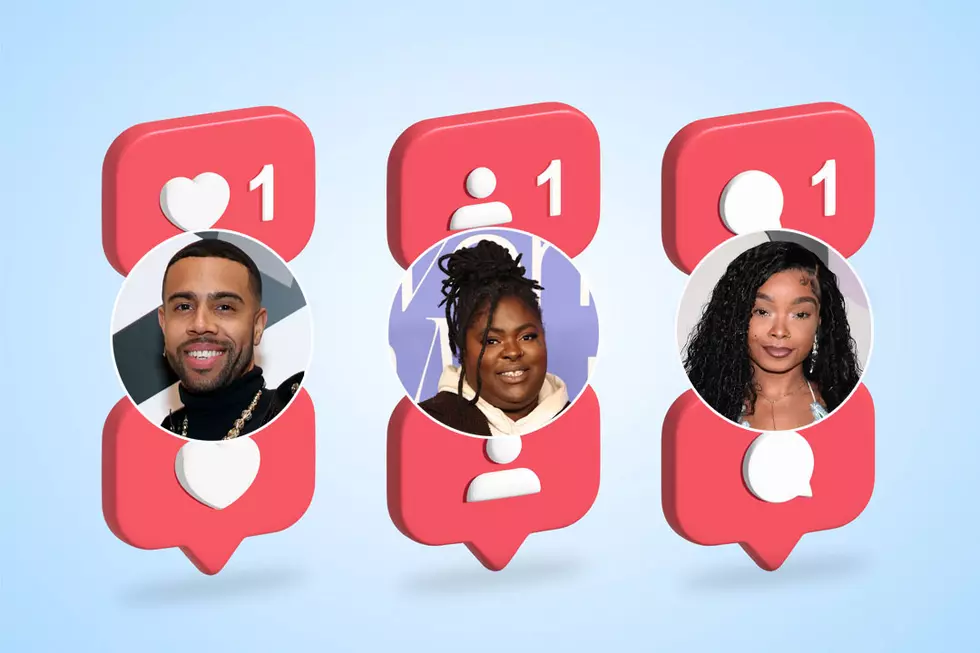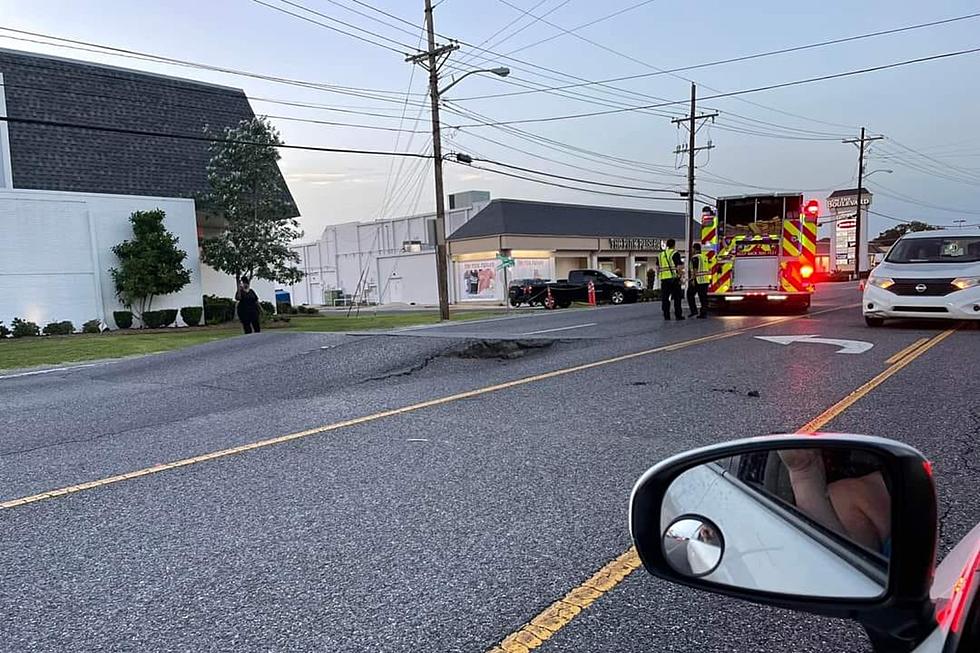
A Look at How Navigating Life on Social Media Gets Complicated in Hip-Hop
Only Human
Even larger-than-life rappers aren't immune from the anxiety, insecurity and hurt feelings that social media can create. Here's a look at how navigating life online and the pressure it brings gets complicated in hip-hop.
Words: Grant Rindner
Editor’s Note: This story appears in the Spring 2024 issue of XXL Magazine, on stands now.
No amount of Grammy wins, platinum records and cultural cache can make a person impervious to the negative qualities of social media. Even superstar rappers, the kind who project a larger-than-life, teflon image, are at risk of getting their feelings hurt. In the last few years, some of the game’s most popular and respected rhymers have faced the worst, most toxic aspects of social media culture by dealing with leaks, salacious rumors and generally mean-spirited comments.
Cardi B, Lil Durk and Kevin Gates, the latter of whom particularly highlighted how social media was fueling his depression, have all taken breaks from social media for their own personal reasons. In 2022, a sex tape of rapper Isaiah Rashad with another man leaked online. That moment of exposure coupled with serious health issues faced by older relatives, caused suicidal ideations for the MC.
Another artist who has faced a ton of social media scrutiny is Megan Thee Stallion, whose 2020 shooting by Tory Lanez has never left the media cycle. It opened her up to rampant misogyny and accusations that she lied about the circumstances of the incident. Lanez was found guilty of assault charges in 2022 and sentenced to 10 years in prison in 2023. Megan has rapped on songs like “Cobra” about her struggles with mental health and thoughts of self-harm.
The issues when it comes to artists dealing with social media really boil down to two things. The first being the kind of comparison-is-the-thief-of-joy situations that Grammy-nominated MC Vic Mensa describes himself experiencing when he found himself lusting after a friend’s Lamborghini posted on Instagram. The photo sent Vic down a “rabbit hole” of envy that ultimately caused him to miss an important flight. The other is the more prevalent issue of nasty, hurtful comments and rumors being shared by users. Psychotherapist Meghan Watson, who founded the diverse group practice Bloom Psychology & Wellness, and has her own robust social media presence, explains that online conversations so often cater to the lowest common denominator.
“I definitely feel like there can be a lot of negative impacts from participating in comment sections that are rife with controversy,” Watson says. “There’s a lot of reactivity that people kind of absorb.”
Chika, a Grammy-nominated rapper, has decidedly mixed feelings about social media. Early in her career, she went extremely viral for a freestyle addressing Ye’s support of former President Donald Trump over Ye’s “Jesus Walks” beat, and the attention that earned helped her secure a deal with Warner Records. Social networking helped her push her career forward, but Chika recognizes the way the platforms can turn on an artist at a moment’s notice, particularly as someone who has spoken openly about her struggles with mental health.
“I can’t say I hate social media because it gave me my career,” Chika admits. “However, I can’t say I love social media because it is the thing that could take it away at the same time.”
The Alabama native, who released her first major label EP, Industry Games, two days after the World Health Organization declared Covid-19 a global pandemic, believes that one of the prolonged effects of quarantine lockdown was that people were spending even more time than ever online, further blurring the lines between a person’s online identity and who they are in real life. This conflation of online personas and real-life identities was probably always going to happen, but the pandemic expedited it in a way that is still being untangled.
“I see critiques of myself [that say] like, ‘She’s more known for Twitter out there,’ and I’m like, Don’t word it like that when literally everybody is on the internet right now,” Chika says. “It’s not that I’m more known for anything. It’s that we haven’t gotten back to normal. So, there hasn’t been much of me being outside that people have seen.”
Even by today’s standards of heightened transparency, Chika has been frank about some of her struggles online. In 2022, she posted about having suicidal ideations, which spread widely across the internet. At the time, she had been feeling negative emotions already. She contacted her therapist over thoughts of self-harm, and hateful social media comments just further contributed to her spiral.
“I remember, someone was like, ‘Kill yourself,’” Chika recalls. “And they didn’t know that that day was the first time I’d had a suicidal thought in a year prior to them saying that. I had said, ‘Hey, you probably shouldn’t say this to people because you don’t even know.’ And that was taken and turned into, ‘Look at her. She’s doing this for attention. You’re always using your mental health as an excuse. You’re using it as an excuse.’ And I’m like, how do people who feign so much care for the community and for mental health, how do y’all so actively pretend to give a f**k?”
A striking thing emphasized by not only Chika, 27, but, also, Vic Mensa, 30, is that they don’t feel like being on social media is an optional component of being an artist nowadays. When Vic began releasing music over a decade ago, a social media presence was additive, not essential.
“I’ve definitely just felt like f**k social media entirely, but I have to realize and recognize that this is an entirely necessary tool for what I do,” Mensa says. “And in many ways, it’s like something you cannot remove or substitute.”
Today, it’s hard to imagine a rapper building or maintaining a fan base without actively engaging their audience online and devoting a considerable amount of effort to their internet presence. There doesn’t seem to be one particular platform seen as being more negative than any other, probably because the expectation today is that an artist will be equally present on all of them.
“I feel like we’re in a time where to be a successful musician, rapper, or artist or singer, you need to be a good content creator,” rapper Rexx Life Raj, 34, explains. That dichotomy creates its own level of stress for musicians and opens them up to even more potentially hurt feelings. “It becomes a lot of pressure to try and align your content with your art,” psychotherapist Meghan Watson says.
Vic, who has been in the public eye since he was barely 20 years old, feels he’s grown considerably in the decade-plus he’s been making music, but explains that internet discourse isn’t reflective of that. Some commentors rush to bring up long-buried controversies as a means of getting an argumentative upper hand. “People can freeze you in time and people can obsess over the past, and this is a predisposition of the human condition,” Mensa adds.
In Latto’s November of 2023 interview with XXL, she spoke frankly about the way women in hip-hop are especially scrutinized online. Latto has had her own past beefs brought up many times by people on social media even when she’s moved past the issues.
“I think we be under this microscope,” Latto shared. “We’re heavily analyzed by blogs, fans and commentators. We gotta go like, 10 times as hard as men do for just equal recognition.”
Brooklyn rapper Lola Brooke says that she has “heard stories of women being treated differently,” and that it may have affected her, but her head-down approach to her career means she doesn’t heed online discourse.
“I express myself through music, so I don’t really interact with anything negative on social media because most of the time the story is not completely true,” Brooke maintains.
Lola’s perspective is a particularly measured one, but there’s obviously a lot of variables at play when it comes to how social media affects an artist. One major factor can be their mental health. Chika has spoken openly about being diagnosed with Bipolar Disorder II and says that the rise of performative activism and “therapy-speak” has not deepened people’s sympathy and awareness when they’re interacting with artists online.
“It’s not a sustainable position for many people, but especially the neurodivergent and anyone with any kind of mental illness, anyone who needs grounding,” Chika conveys. “It’s not for us. You are now a brand and you are now the product and you have to be consumed. It’s weird. I don’t want to dress up who I am because I think who I am is actually enough.”
Vic ties the negativity of comment sections in with the problems of comparison, the thing that caused him to miss that flight because he was ogling over someone else’s pricey ride on Instagram. The internet has allowed anyone to fixate perpetually on how others are living, or the image that they are broadcasting of their lives, and that’s something that affects everyone, from successful rappers like Mensa to his hiphop peers, both older and younger and beyond.
“One of the reasons that mental illness and depression is so prevalent in our current generation is because everybody is obsessed with other people’s lives,” Mensa expresses. “That’s damaging, man. It’s like all age groups are dealing with this s**t.”
Aishah White, a veteran PR executive who holds the title of Senior Vice President, Media & Strategic Development at Warner Records, and is the founder of AKW PR, has worked with artists like Chika, Ty Dolla $ign and XXXTentacion. White uses the same verbiage as Latto, referring to the “microscope” that women in the industry are under, and says she’s seen it affect herself, too. “Me being a Black woman and understanding even how social media has affected me and the way that it perceives Black women,” White says. “I would always caution all of my artists, but especially the women that I work with, [to understand] that they’re under a different microscope.”
When asked if any artists on her roster stand out as having particularly healthy relationships with social media, White names NLE Choppa, the 21-year-old Memphis MC who has generally used his accounts to broaden his image. She emphasizes his interest in holistic health and wellness, publicizing his elementary school reading challenge and showcasing his gifts on the basketball court.
“I have loved watching NLE Choppa’s growth and evolution on social media,” she tells. “He’s [someone] who, you know, came in as a younger rapper, really understanding how to navigate and use social media to reach his core demo.”
White has seen Choppa grow as an artist and as a man. “He understands the responsibility that comes with his celebrity,” she adds. “He’s able to be himself on socials, and crack up, and have fun, and dance and show who he is and his personality.”
While psychotherapist Meghan Watson posits that artists in Chika’s age range and younger, who grew up with social media would be more affected by online discourse, White says that the impact she’s seen is wide-ranging and not limited to specific generations. “I think that it affects everyone equally because if you are a human being, you have feelings,” White declares. “And a lot of times social media can stir up a variety of emotions just from what you’re taking in. It just has to do with human connection.”
Rappers from every walk of hip-hop have lamented the toxicity of sensationalized blogs. These days, the spreading of rumors through social media feels like an unavoidable part of the game for name-brand stars. Most of these outlets exist almost exclusively on social media, where stories spread faster than they can be verified. There often is little accountability for the people who perpetrate the rumors. On her recent chart-topping single, “Hiss,” Megan Thee Stallion rebukes the scores of hateful comments she’s received in the last few years since she was shot. “These blogs get paid to lie, y’all talk s**t and be broke as f**k/Bottom line is I’m still rich, do Megan bad and I’m still good,” she raps.
The importance and ubiquity of internet culture, as well as its potential to foster negative emotions and hurt feelings, is undeniable. But Rexx Life Raj does highlight that the internet can be a place where artists can find enthusiastic support for their most intimate feelings. When Raj released his album, The Blue Hour, in 2022, heavily inspired by the passing of both of his parents, he said that people’s responses online were affirming of his vulnerable songwriting. “The response would be two paragraphs about telling me their dad that they lost in 2003, and how they’ve been fighting these demons and they don’t have the words to express it, and my music did that for ’em,” Raj says.
He also points out the flip side: knowing now more than ever that what happens online isn’t a reflection of reality, it’s just hard to keep sight of that.
“The internet is the internet and we know it can be manipulated, so you shouldn’t take it seriously,” he continues. “You should take everything with a grain of salt because we all know the truth. The veil has been lifted. We see through the smoke and mirrors. The likes are fake. You can buy followers. The streams are fake. Get a camera, you can make a whole facade.”
The challenge is that even though we all know social media is more funhouse mirror than photorealism, keeping that in mind when the rumor mill and negative comments is focused on you is staggeringly difficult. Rappers are public figures, but they’re also humans, too, and the pressure to have an online presence as a component of their careers only opens them up to the worst of sensationalized, hurtful discourse. Though more of these artists are being seen through the lens of social media than ever before, it doesn’t capture the three-dimensionality of the real people behind the songs. The only silver lining? That MCs like Megan Thee Stallion are using these experiences online as fuel for chart-topping records.
Read how social networking has a chokehold on rappers' feelings in the Spring 2024 issue of XXL Magazine, on newsstands now. The new issue also includes the cover story with Gunna and conversations with Metro Boomin, Danny Brown, Teezo Touchdown, 42 Dugg, Jim Jones and Maino a.k.a. Lobby Boyz, Druski, That Mexican OT, 41, BabyDrill, Rapsody, actress La La Anthony, BigXthaPlug, Rob49, Reuben Vincent, singer Tyla, actress La La Anthony and producer Tate Kobang. There's also a look at how hip-hop in 2024 is experiencing more wins than losses and the ways in which kid rappers are thriving thanks to social media.
See Photos of Gunna's XXL Magazine Spring 2024 Issue Cover Story
More From Hot 107.9










